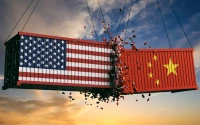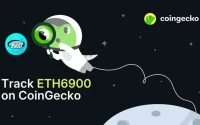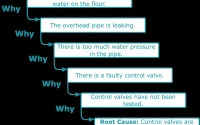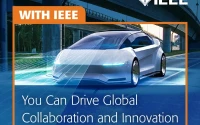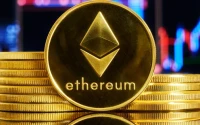Beyond the Numbers: Why Rising Transport Costs Are a Blueprint for Tomorrow's Innovation
Sometimes, the most mundane data releases hold the most profound insights. On Tuesday, November 25, 2025, the U.S. Department of Transportation’s Bureau of Transportation Statistics (BTS) quietly dropped its "Transportation Producer Price Index – September 2025 - bts.gov" report. For many, it's just another set of figures, a bureaucratic hum in the background of our bustling economy. But when I saw these numbers, my first thought wasn't dread, but a jolt of recognition – a powerful signal echoing through the halls of innovation, urging us, challenging us, to build a smarter, more resilient future. This isn't just about inflation; it’s about the very physics of progress, where pressure often precedes paradigm shifts, pushing us past old limits into truly uncharted, thrilling territory.
What did the BTS tell us? In essence, the cost of moving things – and the equipment to do it – is on the rise. From September 2024 to September 2025, prices for freight transportation and equipment climbed by 1.9%. Look closer, and you see the granular shifts: air transport up 2.0%, rail up 1.5%, and crucially, truck transport, the backbone of so much of our commerce, jumped a significant 2.6%. The overall transportation sector wasn't just a passenger in this inflationary trend; it was a major driver, contributing a hefty 14.7% to the total increase in costs faced by producers for all services. Now, for those of you who aren't knee-deep in economic jargon, the Producer Price Index, or PPI, is essentially a measure of inflation from the perspective of costs to industry – in simpler terms, it tells us how much more expensive it is for businesses to produce things, including the act of getting those things from point A to point B. And when those costs rise, especially in a sector as fundamental as transportation, it doesn't just pinch pockets; it lights a fire under the collective inventive spirit.
The Pressure Cooker of Progress
Think of our current transportation infrastructure as a magnificent, sprawling machine, but one designed for a different era. Today, it’s facing unprecedented demands, and these rising costs are like the steam building up in a pressure cooker. It’s not just a problem; it’s the very force that will cook up the next generation of solutions. We're seeing the most significant increases in trucking, which is no surprise given its reliance on fossil fuels and labor, but also in air and rail. Only water transportation saw a slight dip, which, while interesting, doesn't alleviate the broader systemic pressures.

This isn't just a minor fluctuation; it's a persistent trend, a constant drumbeat that demands attention. It forces us to ask: Are we simply going to absorb these costs, passing them on to consumers, or are we going to innovate our way out of this? What kind of breakthroughs could emerge if the economic imperative becomes so strong that it outweighs the inertia of the status quo? Imagine a world where autonomous electric trucks, powered by advanced battery tech or even hydrogen, crisscross our nation with vastly reduced operational costs. Or what if drone logistics for last-mile delivery become so efficient they redefine urban supply chains entirely? We're not just talking about incremental improvements; we're talking about a complete reimagining.
Charting a New Course: The Future's Call
This moment feels, to me, like a pivotal historical juncture. It reminds me of the early 20th century, when the burgeoning automobile industry, initially a luxury, faced its own challenges of scale and cost, eventually leading to mass production and a complete societal transformation. Or perhaps even earlier, when the steam engine revolutionized manufacturing and transport, not just because it was a novel idea, but because it solved pressing industrial needs. We are at a similar precipice, aren't we? The economic signals from reports like the BTS PPI aren’t just numbers on a page; they're the invisible hand pushing us towards a future we can only just begin to glimpse.
The challenge, as always, is not just in the invention but in the responsible deployment. As we chase these incredible efficiencies and sustainable solutions, we must also consider the ethical implications. How do we ensure that these advancements benefit everyone, not just a privileged few? How do we retrain workforces and build equitable access to these new transportation paradigms? The speed of this innovation is just staggering—it means the gap between today and tomorrow is closing faster than we can even comprehend, and we need to be ready for the societal ripple effects, planning not just for efficiency but for equity and inclusion. This is the kind of breakthrough that reminds me why I got into this field in the first place, seeing the human ingenuity that rises to meet seemingly insurmountable challenges.
The Innovation Imperative is Now Unstoppable
The rising tide of transportation costs isn't a harbinger of doom; it's a powerful accelerant. It’s forcing a level of creativity and strategic thinking that incremental changes simply wouldn't inspire. This report from the BTS isn't just a record of the past year's economic shifts; it's a blueprint for the future, etched in the very necessity of change. We're not just looking at a few percentage points of inflation; we’re witnessing the birth pangs of a new transportation era, one driven by efficiency, sustainability, and human ingenuity. The question isn't if we'll transform our transportation systems, but how fast we can make it happen. The future isn't just coming; it's being compelled into existence, right now.





